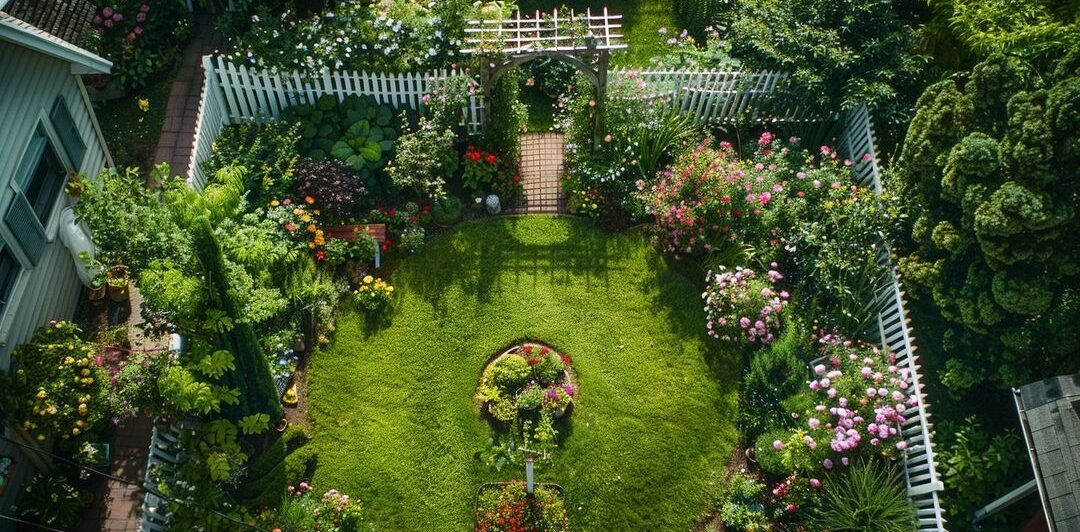
There is nothing better than homegrown vegetables – and it is a very rewarding experience. But for beginners, navigating this world of seed, soil, and sunshine can be confusing. You can always hire expert garden maintenance Harris Hill, NY, services to keep your vegetable garden in the best shape. However, it is always advisable to have a few tips and tricks up your sleeves. This will give you a better understanding of which vegetables to grow, when to grow them, and how to grow them to their full bloom.
In this guide, we have highlighted 11 tips to help you start your vegetable gardening. Excited? Let’s dive in!
Some vegetable seeds are more productive, while others require more time to grow. Choosing the right vegetable seeds is key to enjoying a garden full of produce. So, if you want a harvest, check out the seed catalogs and the plant levels before purchasing them.
Need help with garden landscaping Harris Hill, NY? Get in touch with expert landscapers of Amherst Landscaping.
Compost is one of the great soil amendments – and is also very affordable. It supplies the plant roots with a constant flow of nutrients. For the best results, apply compost annually to your gardens, either in spring or autumn. You can also add additional compost as required, such as a top dressing or side dressing.
Usually, gardens don’t pay much attention to the vertical growing space – but when used the right way, they can be one of the best ways to get more food from your garden. Plants can be placed on shelves. Vining plants can be trained to climb up bamboo poles or plant supports. Don’t miss out on trailing plants – they can be grown on towers and hanging baskets.
You cannot prune all types of vegetables. However, some vegetable plants like peppers and tomatoes will give you more yield if you prune them the right way and at the right time.Your plant will produce more fruit if you remove suckers and extra leaves. Trimming the tops of tomato and pepper plants can also help the final fruit mature before winter.
If you are not sure how to prune the right way, it is advisable to hire landscape gardeners Harris Hill, NY, for that extra help.
Unchecked pests can significantly damage your plant, hinder its growth, and affect the harvest size. If you want to enjoy a good harvest, you should have a plan for pest control by crop rotation, clearing up disease plants during fall, and trying out organic pest control measures. Grow your vegetable garden to full bloom with garden maintenance Harris Hill, NY services.
Long-season plants like peppers and tomatoes take months for the vegetables to grow. But there are also some fast-growing vegetable plants that can be harvested in only a month or two. It is best to sow the seeds two to four weeks apart.. This will extend your harvest window, and you can grow more crops within a season.
You can use liquid or granular fertilizer to fertilize your vegetables throughout the growing season. However, some plants require more fertilizers compared to others. Heavy feeders, like tomatoes and pumpkins, yield better when they are fertilized on a monthly basis. Use phosphorus and potassium-rich fertilizers when they are set fruit and flowers.
Short growing seasons are a problem for gardeners who live in colder climates. This restricts the type of plants that can be grown and their harvesting time. However, there are many season extension products – like cloches and grow tunnels – that can extend short growing seasons by weeks or even months.
Usually, root vegetables can only be harvested once – unless you eat the leaves. Perennial vegetable plants can be harvested repeatedly and are often more productive. These crops include vegetables like leaf lettuce, kale beans, peas, tomatoes, and peppers.
Plants like squash and pumpkins require pollinators like bees and other insects to produce fruits. If your garden doesn’t have pollinators, chances are high that these plants will only grow flowers without any fruits. To avoid this happening, plant pollinated friendly companion plants, such as dill, chives, marigolds, and nasturtiums, in your vegetable beds. This will attract pollinators and ensure that the plants are pollinated properly.
If your vegetable beds are already brimming with plants – you can easily extend this growing space by keeping a few edible plants in grow bags and pots. Lay them along walkways, porches, and patios. It will add aesthetics and will also add ample space for growing vegetables.
So there you have it! These 11 gardening tips will equip you with the knowledge and confidence to embark on a vegetable gardening journey. With that said, remember, gardening is a learning process. So have patience, and soon you will be ready to enjoy the fruits (and vegetables) of your labor.
Need help with garden maintenance Harris Hill, NY? Amherst Landscaping experts are always here to help! Get in touch!